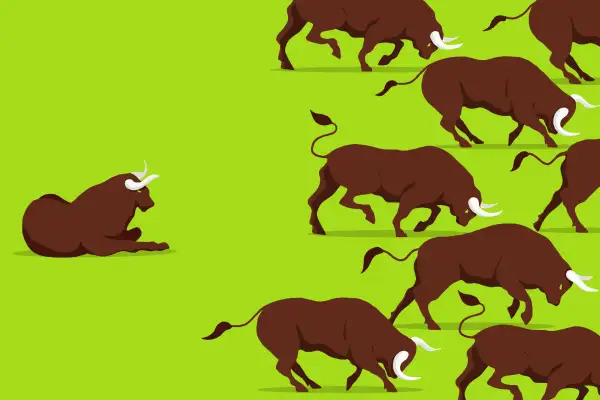This Market Indicator Suggests CEOs May Be More Cautious About Stocks Than Investors
Money is not a client of any investment adviser featured on this page. The information provided on this page is for educational purposes only and is not intended as investment advice. Money does not offer advisory services.

Stock-market investors may be shrugging off the coronavirus, happy to buy shares at prices well above recent March lows. But data suggest executives who lead the companies that make up the S&P 500 are a lot more cautious. They're saving for a rainy day.
Stock buybacks — that is when companies purchase shares of their own stock, ostensibly because executives regard it as undervalued — fell 46% to $89 billion in the second quarter from nearly $166 billion in the same quarter last year, according to S&P Dow Jones Indices, as companies like General Motors, McDonald's and Best Buy all said they would suspend repurchases amid the uncertainty. Analysts expect stock buybacks in the third quarter to remain at half of the $176 billion they were in the third quarter of 2019.
The corporate executives caution is a departure from recent years, when companies bought back record amounts of their own shares — as much as $806 billion in 2018.
Of course, it's hardly unusual for companies to hand money back to shareholders in good times, and conserve cash during recessions. But this time their cautions stands in contrast with investors, who have been buoying market prices to levels in late 2019.
Why do companies buy back their own stock?
Stock buybacks, which many companies use as an alternative (or in addition) to paying cash dividends, is a way to return corporate profits to shareholders. When a company buys back stock it earlier sold, the number of outstanding shares in the market decreases and the value of each investor’s ownership over the company increases.
The method has long been used as a way for executives and company boards to demonstrate confidence in a company's business prospects — and signal they believe the market is undervaluing its shares. "When stock can be bought below a business’s value it is probably the best use of cash," legendary investor Warren Buffett has said.
Wall Street often regards buybacks as a bullish sign. Research from Fidelity Investments finds companies generally underperform before they buy back shares and deliver positive returns over the year following their buyback. When Intel announced in August it will buy back $10 billion of its own stock, its shares jumped over 3%.
Why did companies pause their buybacks?
Since COVID threw the U.S. economy into disarray, executives say they have become far more cautious about business prospects than they were last year.
Applebee's and IHOP's owner Dine Brands Global, said it was suspending buybacks as one of several "precautionary measures" to increase financial flexibility. Making a similar move, UPS pointed to the unpredictability of the virus' impact on the business, and Yum! Brands (which operates fast food chains like Pizza Hut and Taco Bell) noted an "abundance of caution."
Even tech stars have pared back. Apple spent $17.6 billion in the second quarter, but that was down from $18.8 billion in the quarter before. And Alphabet, $6.9 billion, down from $8.5 billion. “Priorities have changed,” says Howard Silverblatt, senior index analyst at S&P Dow Jones Indices.
In the end, it's hardly surprising that companies are less bullish about their business prospects today, than they were in 2018 or 2019. What's more of a mystery is why investors aren't.
More from Money:
Tech Stocks Are Soaring One Day, Plummeting the Next. Here's How Investors Can Cope
How Can Retirees Living Off Savings Succeed in Today's Low-Yield Environment?
Tesla Stock Has Nearly Quintupled in 2020. Is the Bubble About to Burst?
